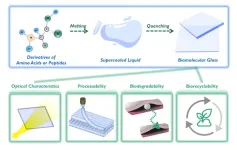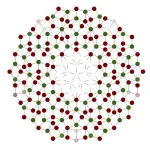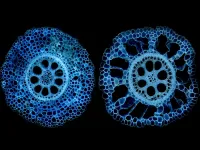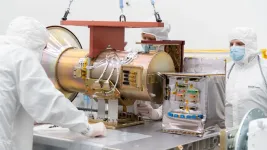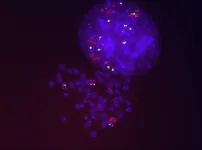(Press-News.org) DURHAM, N.C. – A key feature of the severe allergic reaction known as anaphylaxis is an abrupt drop in blood pressure and body temperature, causing people to faint and, if untreated, potentially die.
That response has long been attributed to a sudden dilation and leakage of blood vessels. But in a study using mice, Duke Health researchers have found that this response, especially body temperature drop, requires an additional mechanism – the nervous system.
Appearing online March 17 in the journal Science Immunology, the study could point to new targets for therapies to prevent or treat anaphylactic shock, which occurs in up to 5% of people in the U.S. annually in response to food allergies or bites from insects or venomous animals.
“This finding for the first time identifies the nervous system as a key player in the anaphylactic response,” said senior author Soman Abraham, Ph.D., professor in the departments of Pathology, Immunology, and Molecular Genetics and Microbiology at Duke University School of Medicine.
“The sensory nerves involved in thermal regulation – especially the nerves that sense high environmental temperatures – send the brain a false signal during anaphylaxis that the body is exposed to high temperatures even though it is not the case,” Abraham said. “This causes a rapid drop in body temperature as well as blood pressure.”
Abraham and colleagues, including first author Chunjing “Evangeline” Bao, a Ph.D. candidate in Abraham’s lab at Duke, tracked the sequence of events when allergens activate mast cells -- the immune cells that trigger the chemical reactions leading to swelling, difficulty breathing, itchiness, low blood pressure and hypothermia.
The researchers found that one of the chemicals mast cells unleash when they are activated is an enzyme that interacts with sensory neurons, notably those involved in the body’s thermoregulatory neural network.
When stimulated as part of an allergic reaction, this neural network gets the signal to immediately shut down the body’s heat generators in the brown fat tissue, causing hypothermia. The activation of this network also causes a sudden drop in blood pressure.
The researchers validated their findings by showing that depriving mice of the specific mast cell enzyme protected them against hypothermia, whereas directly activating the heat sensing neurons in mice induced anaphylactic reactions such as hypothermia and hypotension.
“By demonstrating that the nervous system is a key player – not just the immune cells – we now have potential targets for prevention or therapy,” Bao said. “This finding could also be important for other conditions, including septic shock, and we are undertaking those studies.”
In addition to Bao and Abraham, study authors include Ouyang Chen, Huaxin Sheng, Jeffrey Zhang, Yikai Luo, Byron W. Hayes, Han Liang, Wolfgang Liedtke, and Ru-Rong Ji.
The study received funding from the National Institutes of Health (R01-GM144606).
###
END
Everyone is familiar with glass—from putting on eyeglasses, pushing open the window, standing in front of a mirror, to holding a water glass. Glass is ubiquitous in nature and essential to human life.
But the widespread use of persistent, non-biodegradable glass that cannot be naturally eliminated causes long-term environmental hazards and social burdens.
To solve this problem, a research group led by Prof. YAN Xuehai from the Institute of Process Engineering (IPE) of the Chinese Academy of Sciences has developed a family of eco-friendly glass of biological origin fabricated from biologically derived amino acids or peptides. The ...
LOS ALAMOS, N.M., March 17, 2023 — Research using a quantum computer as the physical platform for quantum experiments has found a way to design and characterize tailor-made magnetic objects using quantum bits, or qubits. That opens up a new approach to develop new materials and robust quantum computing.
“With the help of a quantum annealer, we demonstrated a new way to pattern magnetic states,” said Alejandro Lopez-Bezanilla, a virtual experimentalist in the Theoretical Division at Los Alamos National Laboratory. ...
LA JOLLA—(March 17, 2023) Cancer treatments have long been moving toward personalization—finding the right drugs that work for a patient’s unique tumor, based on specific genetic and molecular patterns. Many of these targeted therapies are highly effective, but aren’t available for all cancers, including non-small cell lung cancers (NSCLCs) that have an LKB1 genetic mutation. A new study led by Salk Institute Professor Reuben Shaw and former postdoctoral fellow Lillian Eichner, now an assistant professor ...
DURHAM, N.C. – A research team at Duke Health has identified a set of biomarkers that could help distinguish whether cysts on the pancreas are likely to develop into cancer or remain benign.
Appearing online March 17 in the journal Science Advances, the finding marks an important first step toward a clinical approach for classifying lesions on the pancreas that are at highest risk of becoming cancerous, potentially enabling their removal before they begin to spread.
If successful, the biomarker-based approach could address the biggest impediment to decreasing the ...
UNIVERSITY PARK, Pa. — A new discovery, reported in a global study that encompassed more than a decade of research, could lead to the breeding of corn crops that can withstand drought and low-nitrogen soil conditions and ultimately ease global food insecurity, according to a Penn State-led team of international researchers.
In findings published March 16 in the Proceedings of the National Academy of Science, the researchers identified a gene encoding a transcription factor – a protein useful for converting DNA into RNA – that triggers a genetic sequence responsible for the development of an important trait enabling corn roots ...
With more than half of the world’s population active on social media networks, user-generated data has proved to be fertile ground for social scientists who study attitudes about the environment and sustainability.
But several challenges threaten the success of what's known as social media data science. The primary concern, according to a new study from an international research team, is limited access to data resulting from restrictive terms of service, shutdown of platforms, data manipulation, censorship and regulations.
The study, published online March ...
Even after 27 years of reunification, East Germans are still more likely to be pro-state support than their Western counterparts, a new study published in the De Gruyter journal German Economic Review finds. Of the sample studied, 48% of respondents from the East said it was the government’s duty to support the family compared to 35% from the West.
The study led by Prof. Nicola Fuchs-Schündeln of Goethe University Frankfurt, Germany builds on her earlier work which evaluated results from the German Socio-Economic Panel, a regular survey of around 15,000 households. The survey has been running in the federal ...
NORTH LOGAN, UTAH - NASA has announced that the launch of the Utah State University Space Dynamics Laboratory and College of Science-led Atmospheric Waves Experiment, or AWE, is scheduled for December 2023. The NASA-funded instrument will launch from Cape Canaveral Space Force Station to the International Space Station.
AWE Principal Investigator Michael Taylor from USU’s College of Science leads a team of scientists that will provide new details about how the weather on Earth interacts with, and affects, space weather. To do that, the AWE instrument, measuring about 54 centimeters by 1 meter and weighing less than 57 kilograms, will peer into Earth’s ...
Texas Engineers are leading a multi-university research team that will build technology and tools to improve measurement of important climate factors by observing atoms in outer space.
They will focus on the concept of quantum sensing, which use quantum physics principles to potentially collect more precise data and enable unprecedented science measurements. These sensors could help satellites in orbit collect data about how atoms react to small changes in their environment, and using that to infer the ...
A collaborative study carried out by the groups of Matthias Drosten, principal investigator at the Cancer Research Center (CSIC- University of Salamanca), and Mariano Barbacid, head of the Experimental Oncology group at the CNIO, reveals the mechanisms responsible for the development of tumor resistance to Sotorasib, the first approved inhibitor against the KRAS oncogene.
The study, recently published in the Journal of Clinical Investigation, shows that lung tumor cells can rapidly adapt to this drug by increasing the number of copies of the mutated KRAS gene targeted by the treatment and by increased expression of xenobiotic pathways that limit ...
